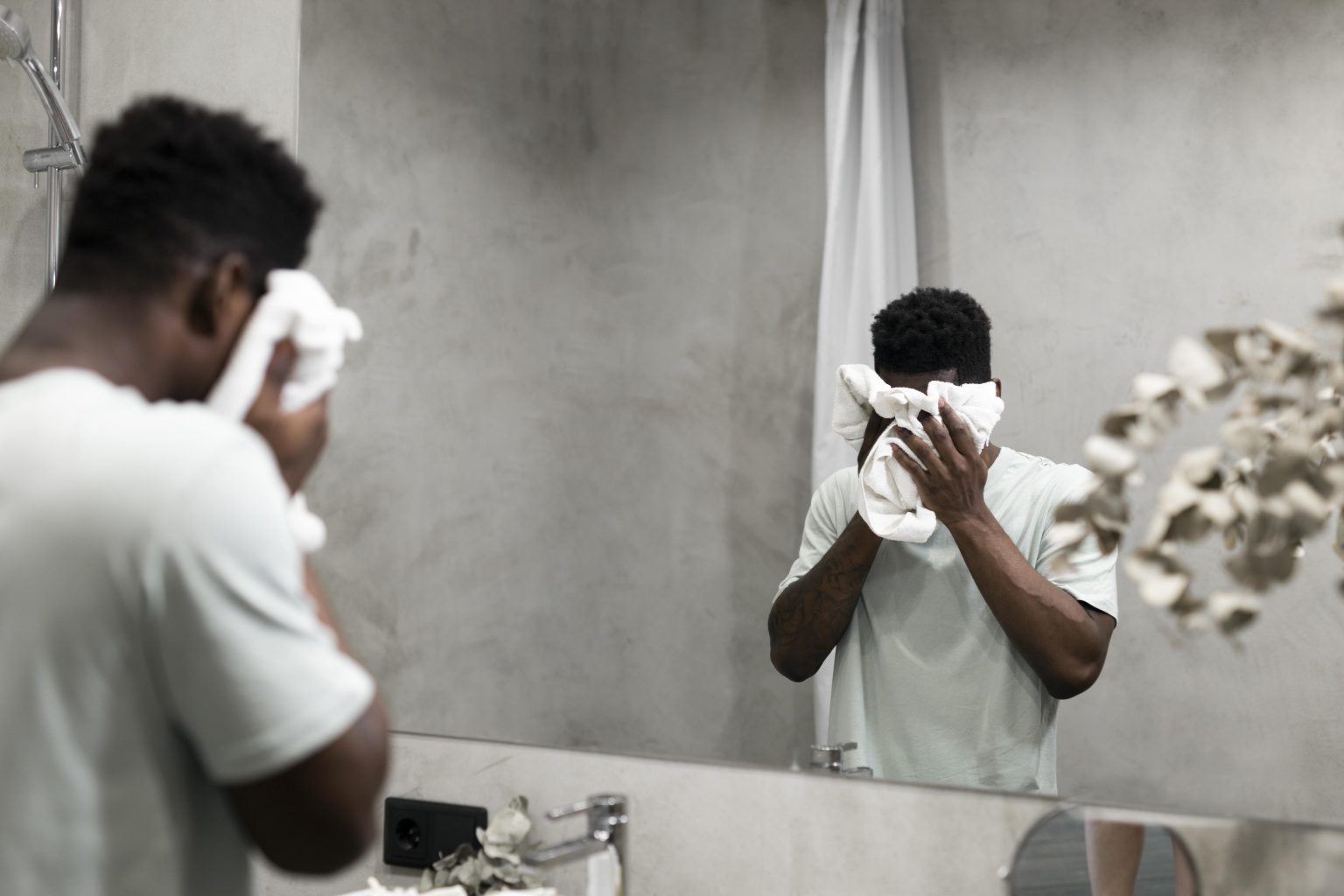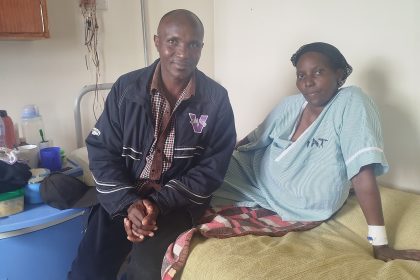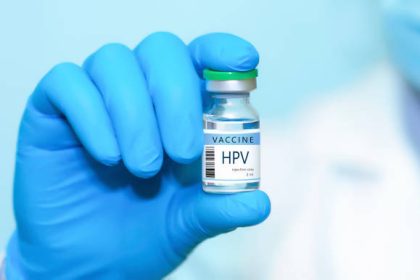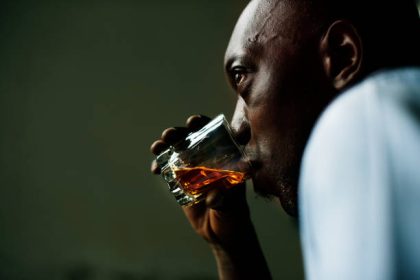Benign Prostatic Hyperplasia (BPH) isn’t cancer, just an enlarged prostate that blocks urine flow, affects sleep, creates shame, often goes unspoken.
There’s a moment in every man’s life when something starts to change but no one tells you what to expect. It doesn’t come with an announcement or flashing lights. It begins quietly, like a whisper in the night. A few extra trips to the bathroom. A weak stream. A sense that something isn’t quite right.
Behind this is a small, hidden gland: the prostate. Tucked just beneath the bladder and wrapped around the urethra, the prostate helps produce the fluid that carries sperm. But it grows in silence, and when it presses against the urethra, it begins to steal a man’s freedom.
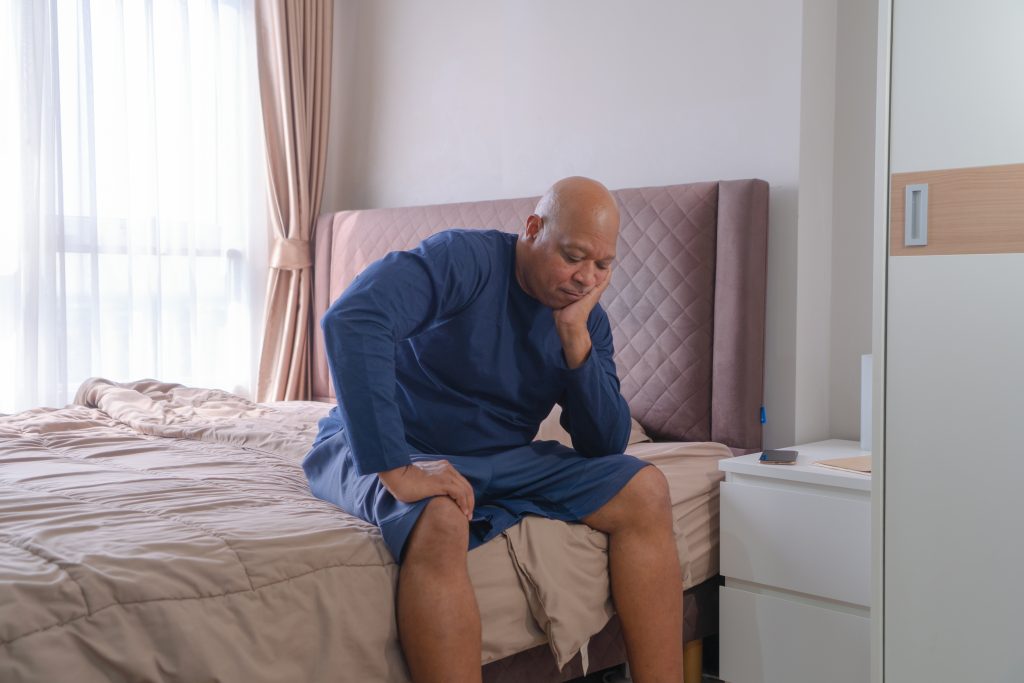
This is the reality of Benign Prostatic Hyperplasia (BPH) an enlarged prostate that isn’t cancer but feels like a slow unravelling of control. It doesn’t take your life, but it slowly chips away at your dignity. The late-night wakeups. The fatigue. The hesitation to go out. The shrinking of a once-vibrant life.
It’s easy to confuse BPH with prostate cancer as both affect the same gland. But while cancer can be fatal, BPH is a long, nagging condition that wears men down over time. Its location is what makes it so disruptive, as it blocks urine flow, affects sleep, creates shame, and often goes unspoken.
More than half of men over 60 suffer from BPH, but most won’t talk about it, not even with their doctors. By age 80, over 90% are affected. But in our homes, churches, and communities, men continue to suffer in silence, hoping the problem will go away. This is not just a medical condition; it’s a quiet crisis.
The stream weakened, sleep vanished, going to church or taking a matatu became a challenge
Take Peter Mwangi*, a soft-spoken farmer from Tharaka Nithi County who says, “At first, I thought it was just age. I started waking up two, then three times a night. Then I’d barely get back into bed before feeling like I needed to go again.”
What began as mild discomfort soon became a daily struggle. The stream weakened, sleep vanished, and even going to church or taking a matatu to town became a challenge.
“It was like my bladder had lost its power,” he says. “I was constantly tired and irritable, I felt like I was falling apart.”
Like many men, Mwangi had heard about “something that bothered old men” in their 60s and 70s. Certainly not someone still in his 50s. He had no idea this small, hidden gland could cause so much trouble. It wasn’t until his wife insisted that he sought medical help. A local clinic referred him to a mission hospital: the blood tests and a prostate ultrasound returned alarming results.
“They said my prostate had grown to 98cc against a normal size of about 20–30cc.”
The word ‘biopsy’ scared me. I thought I was going to die
The doctors diagnosed him with BPH, but there was another concern. Due to his age and slightly elevated Prostate-Specific Antigen (PSA) levels, they recommended a biopsy to rule out prostate cancer.
“The word ‘biopsy’ scared me. I thought I was going to die,” Mwangi admits. “The procedure itself wasn’t painful, just uncomfortable. But the waiting… the waiting was the hardest. Two weeks of sleepless nights.”
Fortunately, the results came back negative for cancer. Just an aggressively enlarged prostate. He was put on medication, along with dietary advice to cut back on caffeine and drink less water at night. And for nearly two years, Mwangi had his life back. “I could sleep. I could travel. I was back to myself.”
But like many patients, the relief led to complacency. The medication was costly, and the side effects, including fatigue and lowered libido, began to wear him down. So, he stopped. But last year, the symptoms resurfaced and “this time, something was burning. It feels worse. I strain more when urinating, and I’ve even had one or two accidents.”
My wife says I’ve become moody, I avoid visitors and public events
A follow-up scan revealed that his prostate had now grown to 102cc, and “They want me to consider surgery.” The impact is profound on his body, emotions, and sense of manhood.
“It’s hard to travel. I avoid drinking fluids in the evening, and I’ve become more withdrawn,” Mwangi confesses. “My wife says I’ve become moody. Sometimes I don’t want to talk. I avoid visitors and public events.”
There’s a pause in his voice when asked how it’s affected his confidence: “Yes, I feel less like myself. Especially when I’m pressed and there’s no toilet nearby. It makes you feel like a child.”
Mwangi admits he’s never talked about it with his peers, as “Men don’t talk about such things. It’s embarrassing.”
Benign Prostatic Hyperplasia (BPH) is the medical term for a non-cancerous enlargement of the prostate gland. As men age, the prostate naturally begins to grow. But in some cases, it grows too large, pressing against the urethra and obstructing the flow of urine. It’s not life-threatening like prostate cancer, but it can become life-limiting.
Difficulty starting urination, a sensation of incomplete bladder emptying
The symptoms of BPH creep in gradually and are often brushed off as normal ageing: A weak or interrupted urine stream, frequent urination especially at night, urgency or difficulty starting urination, a sensation of incomplete bladder emptying, straining during urination, and in some cases, urinary tract infections or bladder stones.
According to the Kenya Association of Urological Surgeons (KAUS), BPH is the most common urological condition in men over 50. Yet, less than 40 per cent of symptomatic men in Kenya seek treatment, often due to stigma, lack of awareness, or limited access to specialised care.
The diagnosis of BPH is no longer guesswork. It requires a careful combination of patient history and symptom scoring, Digital Rectal Exam (DRE) to assess size and texture of the gland, PSA blood test to rule out cancer, ultrasound imaging to measure prostate volume and bladder condition, and lastly, urine flow tests or post-void residual scans in more complex cases.
Treatment of BPH depends on the severity of symptoms. Options include lifestyle changes such as reducing caffeine and evening fluids; medication such as alpha-blockers to relax muscles, or 5-alpha-reductase inhibitors to shrink the prostate; and surgery, including Transurethral Resection of the Prostate (TURP) for advanced cases.
For Mwangi, medications initially offered relief. But like many patients, he stopped when he felt better, and when the cost and side effects became too much.
I noticed reduced sexual drive and dizziness. That’s partly why I stopped
“The drugs worked for about two years… but I noticed reduced sexual drive and dizziness. That’s partly why I stopped.”
Non-compliance is a major challenge in Kenya. Studies have shown that up to 50 per cent of BPH patients discontinue treatment within the first year, leading to relapse, complications or the eventual need for surgery.
Untreated BPH doesn’t just harm the bladder—it slowly eats away at a man’s sense of independence and masculinity. The constant fear of not finding a toilet, the fatigue from broken sleep, the withdrawal from family social spaces.
There’s also a psychological toll linked to anxiety, depression, and feelings of shame. Since men often suffer silently, they miss out on early interventions that could prevent such decline.
Annual screening for men aged 50 and earlier screening from age 40
But all is not lost. To address the problem, the Kenya Ministry of Health’s Prostate Health Guidelines recommend annual screening for men aged 50 and earlier screening from age 40 for high-risk individuals, including those with a family history, community outreach to challenge taboos, and training of primary health workers in early detection.
County hospitals should also get trained urologists and essential diagnostic tools, as well as prostate health education in community campaigns.
Men should begin to view prostate exams, which involve a simple PSA test and ultrasound, as an essential part of routine care.
Early detection of prostate issues like BPH or even cancer can prevent serious complications. It’s time to normalise prostate health conversations and make these exams a priority, just as women have done with cervical screening.
Antony Kathendu is a Sonographer and creative non-fiction writer in Meru County.



